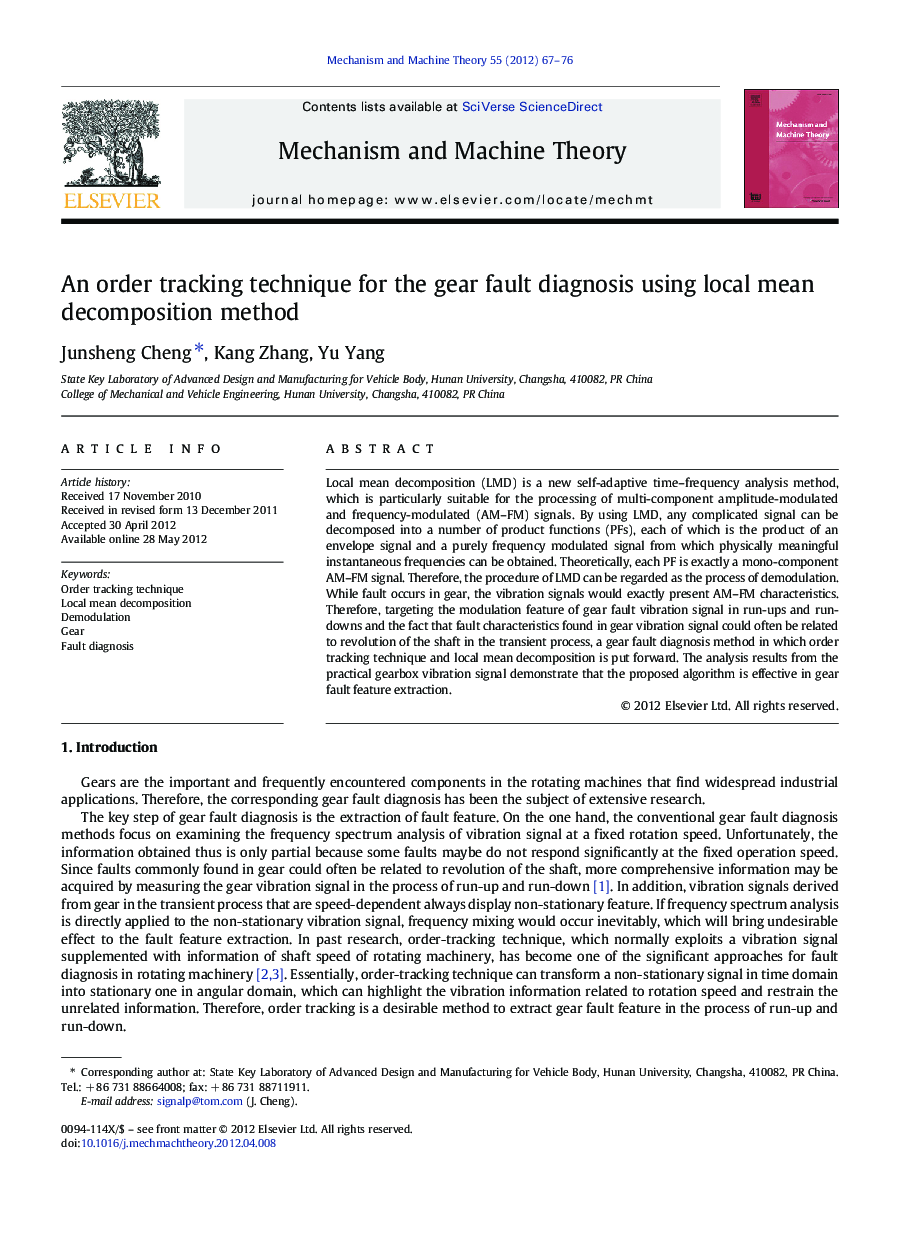| Article ID | Journal | Published Year | Pages | File Type |
|---|---|---|---|---|
| 801973 | Mechanism and Machine Theory | 2012 | 10 Pages |
Local mean decomposition (LMD) is a new self-adaptive time–frequency analysis method, which is particularly suitable for the processing of multi-component amplitude-modulated and frequency-modulated (AM–FM) signals. By using LMD, any complicated signal can be decomposed into a number of product functions (PFs), each of which is the product of an envelope signal and a purely frequency modulated signal from which physically meaningful instantaneous frequencies can be obtained. Theoretically, each PF is exactly a mono-component AM–FM signal. Therefore, the procedure of LMD can be regarded as the process of demodulation. While fault occurs in gear, the vibration signals would exactly present AM–FM characteristics. Therefore, targeting the modulation feature of gear fault vibration signal in run-ups and run-downs and the fact that fault characteristics found in gear vibration signal could often be related to revolution of the shaft in the transient process, a gear fault diagnosis method in which order tracking technique and local mean decomposition is put forward. The analysis results from the practical gearbox vibration signal demonstrate that the proposed algorithm is effective in gear fault feature extraction.
► The combination of the order tracking and local mean decomposition. ► EMD method is replaced by LMD and some limitations existing in EMD could be avoided. ► The limitations produced by Hilbert transform can be avoided in the order tracking based on LMD.
